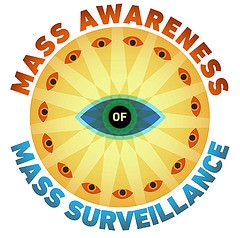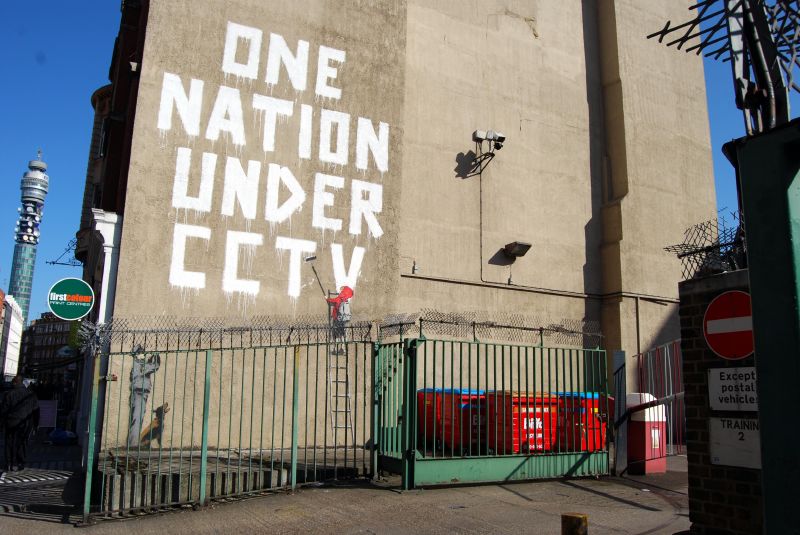 The lapsing of intrusive sections of the Patriot Act, and the pending vote for the creepily-named USA Freedom Act, has brought government surveillance right back into the forefront of people’s minds. However, it’s clear that these small wins will likely result in little more than delaying the inevitable pushback from intelligence agencies determined to maintain supremacy. The regulatory landscape is important, and it’s heartening to know that there are key players fighting the good fight, but if we rely solely on this avenue then we are succumbing to complacency on one of the most pressing and wide-reaching issues of the modern era.
The lapsing of intrusive sections of the Patriot Act, and the pending vote for the creepily-named USA Freedom Act, has brought government surveillance right back into the forefront of people’s minds. However, it’s clear that these small wins will likely result in little more than delaying the inevitable pushback from intelligence agencies determined to maintain supremacy. The regulatory landscape is important, and it’s heartening to know that there are key players fighting the good fight, but if we rely solely on this avenue then we are succumbing to complacency on one of the most pressing and wide-reaching issues of the modern era.
As Shami Chakrabarti, Director of the excellent organisation Liberty, has stated:
“massive spy programmes…would seem to have been sanctioned and operated with contempt for and no recourse to democratic niceties of public knowledge, political discussion and debate – let alone legal authority. We are told just to trust them, told ‘Nothing to hide, nothing to fear’. But we all have something to protect, if not hide. Information is power and, as we have seen, unchecked power will inevitably be abused by accident or design.” (On Liberty, p140)
What can one person do? It turns out, a reasonable amount. Mass surveillance programmes are incredibly (shockingly) comprehensive in their scope and reach, but they aren’t foolproof. People around the world need to unite and stand up to these gross violations of our human rights to privacy and autonomy, and to do so in a manner that helps build a resilient communications infrastructure and foundation for modern living that is not so easily oppressed by present governments and (more importantly) potentially totalitarian and violent regimes that might arise in the future. It’s a very slippery slope, and one that will emerge before most of us have time to realise what has happened.
Anthony Richards, writing in the March 2015 edition of the Chatham House journal International Affairs, noted one such recent step as “it appears that ‘terrorism’, ‘radicalization’ and ‘extremism’ have increasingly become merged into a single discursive framework; one consequence of this process has been to blur the important distinction between ‘extremism’ of thought and ‘extremism’ of method” (p371). This ‘single discursive framework’ will be familiar to many who were involved in the Occupy movement, to pick but one example who found themselves designated terrorists and extremists in official police documentation.
So, here are some perfectly legal, morally sound, and relatively easy steps that every conscientious citizen should be taking to say no to untargeted government surveillance:
Encrypt Everything
This step is the bread and butter of protecting yourself, and there are dozens of different ways and endless contexts through which to practice it. Basically, you should be encrypting everything you can manage – but particularly your online activity. The easiest way to begin this process is with a high-quality VPN service, which comes with the added bonus that you can access different Netflix regions and watch other online content that is country specific. From there, your options become more complex but are worth exploring in detail to see what could apply to your particular circumstance. Start to implement as many different forms as you can manage, and use them all the time even for the most mundane activity. Encryption should be the norm, not an indication that you are doing something worthy of suspicion.
Reconsider Smartphones
 For those who want to know everything about you, smartphones are their new best friend. Not only do we run into the general issues of privacy that come with online activity of any kind, but all of it is attached to GPS with the added bonus of an always accessible camera and microphone! Astonishing really – not only what you are doing, but where and with whom. It sounds like an impossible ask, but it’s worth considering whether you really need that latest smartphone over more simple models. The added benefit of using older phones is that they are much better at being phones, funnily enough. For those of you who don’t want to give up the convenience and connectivity (and really, there aren’t many) then you need to explore more secure options – such as those provided by Silent Circle and their forthcoming Blackphone 2.
For those who want to know everything about you, smartphones are their new best friend. Not only do we run into the general issues of privacy that come with online activity of any kind, but all of it is attached to GPS with the added bonus of an always accessible camera and microphone! Astonishing really – not only what you are doing, but where and with whom. It sounds like an impossible ask, but it’s worth considering whether you really need that latest smartphone over more simple models. The added benefit of using older phones is that they are much better at being phones, funnily enough. For those of you who don’t want to give up the convenience and connectivity (and really, there aren’t many) then you need to explore more secure options – such as those provided by Silent Circle and their forthcoming Blackphone 2.
Speak Up
A large part of the long-term struggle for freedom of all kinds is knowing when to speak out against injustice. The flagrant mass-violation of privacy is one such moment, made even more necessary because the programmes are ineffective at their stated task, and there’s no time like the present to begin educating yourself so that you might share that knowledge with those you come into contact with. This starts with friends and family, but moves onto colleagues and other networks that you are personally involved in – and also involves becoming politically active as a conscientious citizen and expressing your concern to local representatives and other channels of influence that you may have access to. Making sure that this remains a headline story is an important aspect of shifting the balance of power back towards citizens when key moments arise.
Enhance Browsers
In combination with the first suggested step, it’s important to understand that encryption isn’t the only precaution necessary when it comes to your online privacy. Browser fingerprinting allows websites to identify your particular computer’s configuration, which given the limitless variations means that most of us are unique. It’s also important to be aware of the amount of information you share during your daily online activity, which is usually sold for marketing but can be used by anybody wanting to track your movements. There are plenty of different options out there, and some of them require more knowledge to use than others (beware, if you go far down this route the internet suddenly becomes a rather haphazard and broken experience!), but your internet browser should be considered at the forefront of your privacy strategy.
Reconsider Social Media
Leave Facebook. If you’re not going to do that, consider how you use social media platforms and the information you put on there. Understand your privacy options, and then also understand that those settings mean absolutely nothing when it comes to requests for access by government agencies. It’s not easy, or desirable really, to shut yourself off from social media entirely – but you need to carefully think about how you use it and what it means to be providing this much personal information to for-profit companies that are required by law to provide full access upon request. Perhaps more importantly, you can actively use these platforms to disseminate information that is disruptive of abusive initiatives and programmes. Don’t be a passive provider of information, embrace the true breadth of freedom of expression and find your voice online that can speak to important issues.
Pay Cash
Ultimately what we’re talking about here is the impact of big data on the ability of external entities to monitor our connections, activity and essentially our thoughts. Consumer transactions are a key component to that data, and if you stop to think about it pretty much every purchase you make is now linked directly to your identity. Online purchases made on credit cards are a large aspect of this (look into Bitcoin if you want to see a growing alternative), but so are things like loyalty cards to supermarkets. If you want to avoid adding to this pool of data then you need to pay in cash, and overlook the 1% discount you’re being offered by retailers in return for the map of your spending habits and insight into your daily life.
Think About Location
 This is going to be the most difficult aspect for pretty much everybody, but there are clearly certain countries that are forging ahead with plans to legalise mass data collection on the private lives of citizens. The UK is one clear example where things look like they will get a lot worse, but this isn’t solely a Western problem. Countries such as China and Russia are pretty much unaccountable when it comes to such things – as is much of the Middle East – and these areas have the added bonus of extensive and often ruthless censorship. When thinking long term, it’s important to become knowledgeable about policy movements in your home country and to have some view of what your options might be if things start to get really bad.
This is going to be the most difficult aspect for pretty much everybody, but there are clearly certain countries that are forging ahead with plans to legalise mass data collection on the private lives of citizens. The UK is one clear example where things look like they will get a lot worse, but this isn’t solely a Western problem. Countries such as China and Russia are pretty much unaccountable when it comes to such things – as is much of the Middle East – and these areas have the added bonus of extensive and often ruthless censorship. When thinking long term, it’s important to become knowledgeable about policy movements in your home country and to have some view of what your options might be if things start to get really bad.
Talk To Your Kids!
We have seen a massive shift in the perception of privacy and ownership of personal data over recent years, in large part spearheaded by multinational tech companies that provide innovative and life-changing services in exchange for intimate access to our lives. For those who have grown up amongst this rapidly transitioning period, there is a tendency to view privacy as something of little importance – who cares what people think, and what they know about us? It’s important to have open and frank discussions with your children and other younger people you may know about these issues. Not just because it will help keep up a cultural resistance to the erosion of our civil liberties, but even more simply because there are many areas of online life that can be dangerous or abusive to those who aren’t prepared for them. Talk to your kids, engage with them and the new and wonderful platforms they take part in.
These are a few guidelines on how you can start taking back ownership of your identity and the digital footprint that you leave – they are but a handful amongst many. On an individual level, it’s all a matter of balance. Some people won’t want to lose contact with their old high-school friends, but they might be willing to replace online shopping with physical stores. Others will want to do everything they can to speak up and be vocal, but they won’t want to move out of larger cities filled with CCTV. Some of us are technically minded and can set up the more complicated protections, others will prefer one-click solutions wherever possible.
Ultimately, all of us are going to act differently. It’s important though that government surveillance continue to be a topic of conversation, that it be included in how you think about your life and the manner in which we live in community with others. Education is vital at this point in time, as misinformation and fear-mongering is rife, but action is equally important. Figure out what steps you are comfortable to make, and start making them today.
This is Day 2 of the Month of Futurist Posts here in June – check in tomorrow for another update! Leave your thoughts below on this post, what have I missed?




